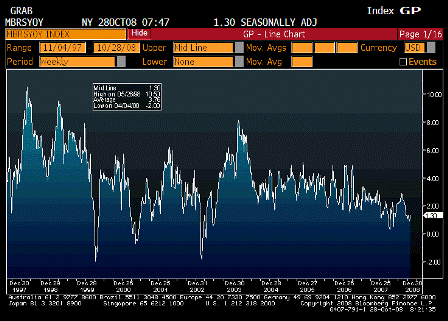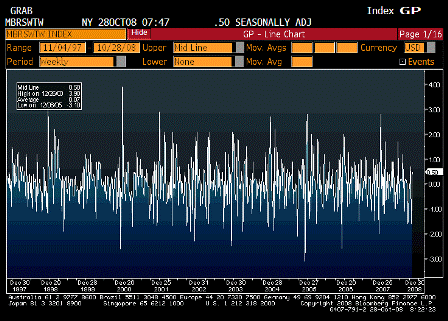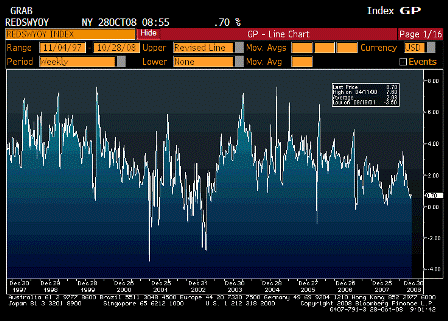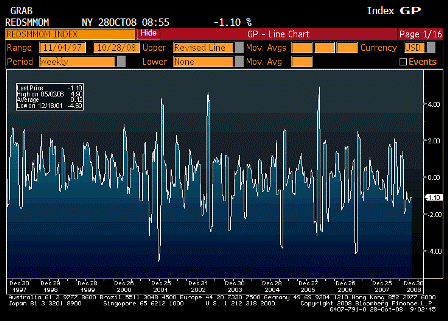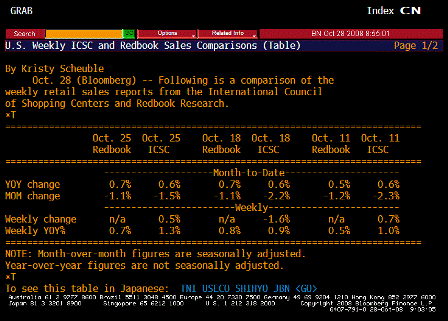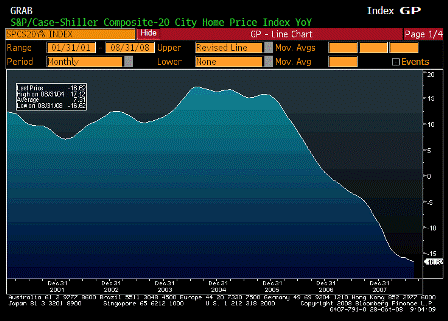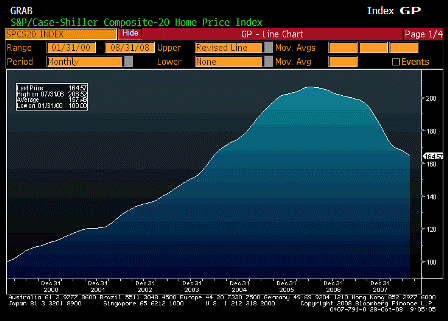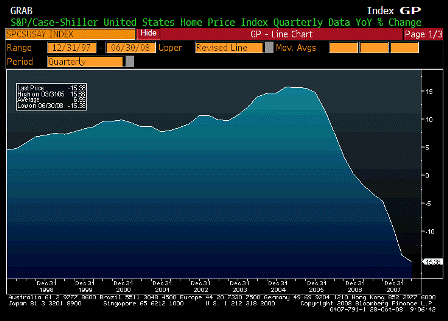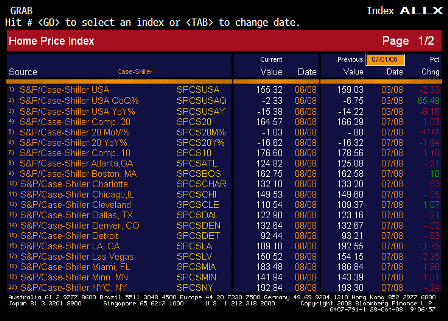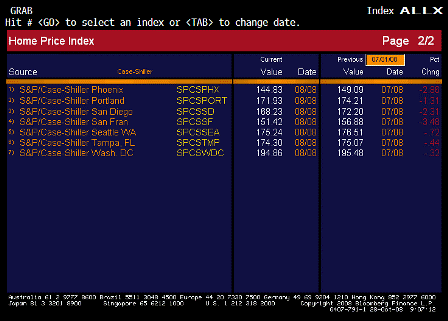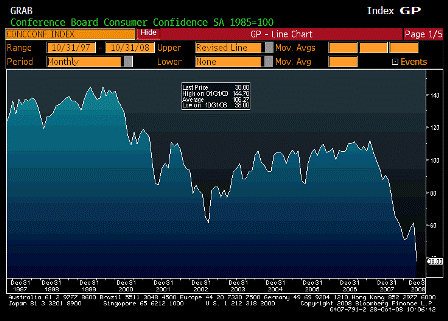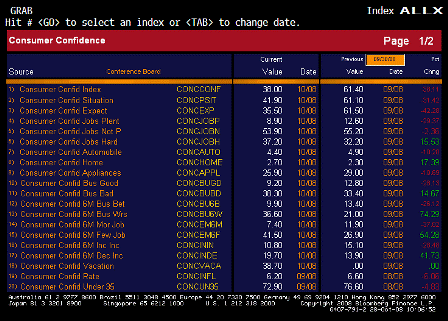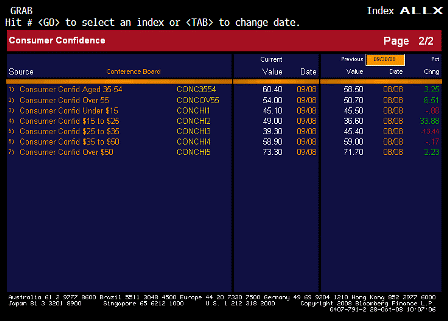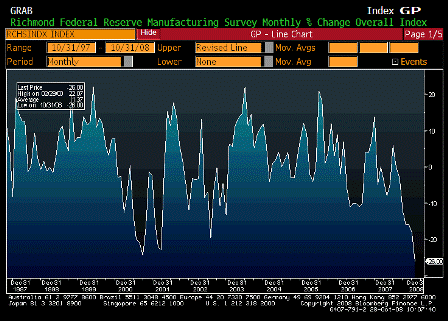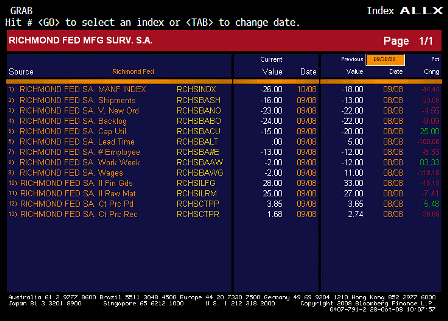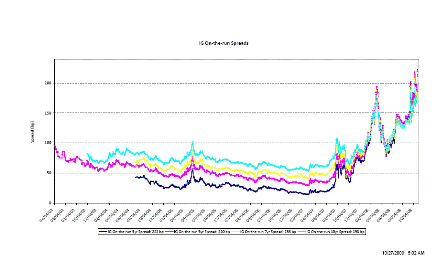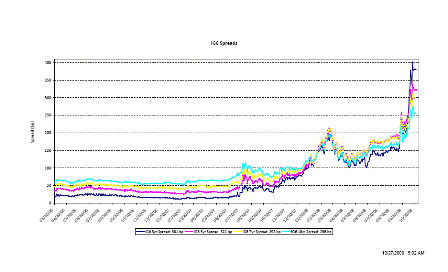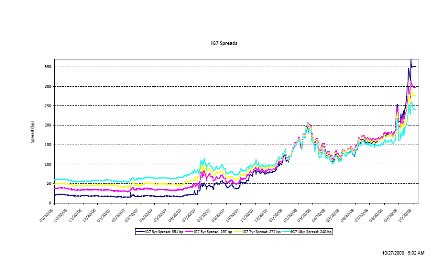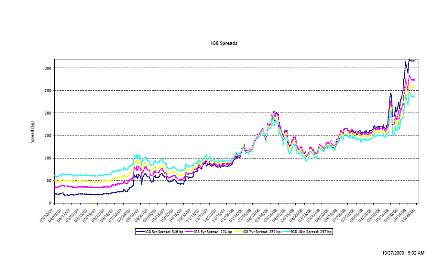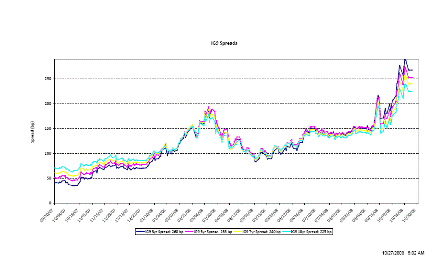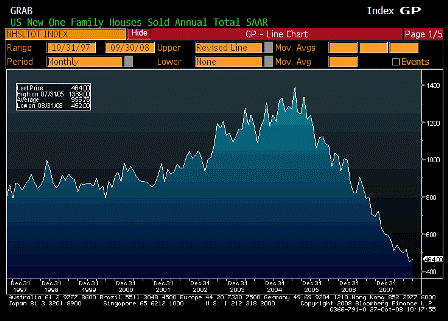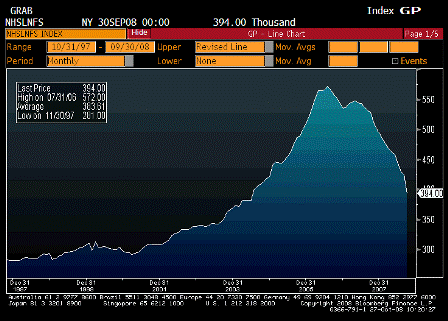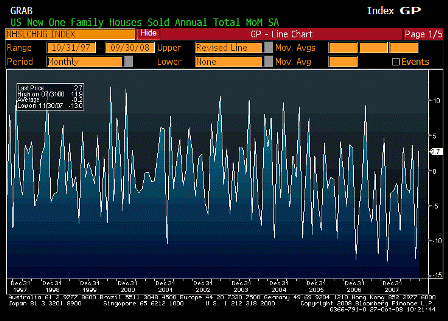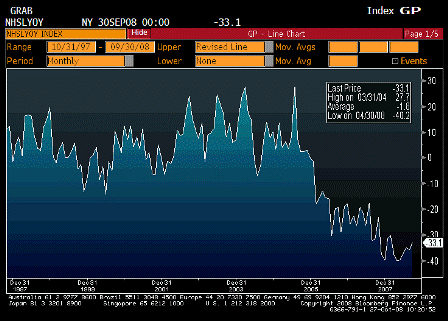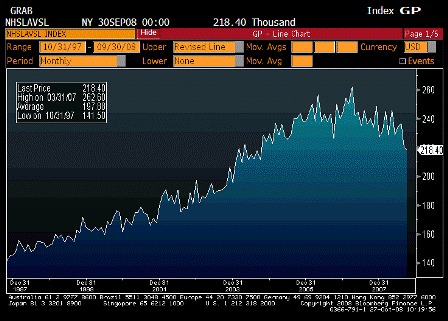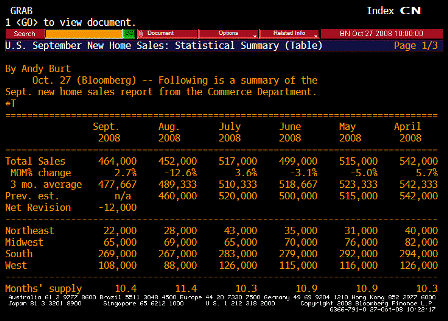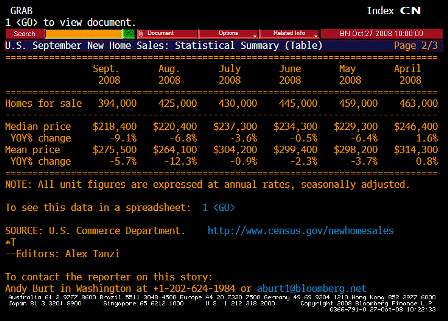[Skip to the end]
Almost three months ago, this column described Prime Minister Gordon Brown, and his Chancellor Alistair Darling as “Keynesian”. The last decade of Brownite policy, after all, has featured high public spending, irresponsible borrowing and an ever-growing tax-burden.
by Liam Halligan
Until recently, though, Brown and his entourage have played down their “big government” tendencies – stressing prudence, private enterprise and the joys of lower tax.
But now, with the UK in the grip of the credit crisis New Labour has revealed its true statist colours. “We are spending more to get the economy moving,” said Brown last week. “That’s the right thing to do.”
Agreed.
Well, actually, it isn’t. The last 50 years are riddled with grim episodes of Western governments trying to spend their way out of recession. Every attempt has gone wrong – resulting in spiralling national debts, soaring inflation and a plunging currency.
Those are the financial outcomes, not real outcomes. And the last one was from a failed attempt at a fixed exchange rates- the ERM policy.
In 1976, then Labour Prime Minister Jim Callaghan made a passionate speech to his party conference, telling comrades “in all candour” that the option of reversing a downturn by “deficit-spending” simply “doesn’t exist”.
Callaghan was in a position to know. His Keynesian policies had destabilised the UK economy so seriously we were forced to go cap in hand to the International Monetary Fund.
The UK was forced to the IMF to borrow foreign currency to support the failed fixed exchange rate policy of the firm.
That’s right – the UK’s mid-1970s IMF bail-out, the indisputable nadir of this country’s post-war economic history, was the direct result of Keynesian policy.
No, it was a direct result of the failed ERM policy.
Yet, here we are 22 years on. The young left-wing firebrands who sneered at Callaghan’s brave admission now run the country. To gain power, they had to bury their beliefs, shave off their beards and parrot a faith in free markets.
Since 1997, despite this pretence, New Labour’s “soft Keynesian” concoction of high spending, loose credit controls and more tax has contributed mightily to our current predicament.
Not at all. In fact, tight fiscal have been the rule, and contributed to the current downturn.
But faced with a crisis, and with their backs to the electoral wall, the Brownites are reaching for the intellectual comfort blanket of their youth – the “hard Keynesian” solution of ramping up spending sharply.
Yes, and rightly so. This time with no ERM to trip over.
Because we’re in a crisis, though, Brown’s Keynesian declaration has raised barely any protest. That’s why the letter in today’s Sunday Telegraph is so important – which makes clear Keynesianism is a “misguided and discredited as a tool of economic management”. The economists who signed it cannot be dismissed as parti pris. The economic consensus against Keynesianism is based on evidence, not ideology.
For now, the airwaves are full of economists from investment banks and accounting practices whose firms stand to do quite nicely from a big dollop of extra public infrastructure spending.
These are the type of firms that benefit from the growth and strength of an economy.
Keynesianism? Bring it on, they say.
As should the citizens.
But there are many, many dismal scientists with serious misgivings – but who don’t have “media strategies”, and who perhaps lack the courage to voice their concerns, given that millions of people are frightened about their jobs.
And who doesn’t understand non-convertible currency with floating FX policy.
No one is denying the UK economy is in a bad place. New preliminary data shows the first quarterly output drop for 16 years. Between July and September, GDP fell 0.5 per cent, pushing annual growth down to 0.3 per cent.
Good thing they are looking to spend their way out of it.
As the signatories to our letter make clear, it is “inevitable government expenditure and debt rise in a recession” – as the “automatic stabilisers” kick in, the tax-take falls and benefit spending rises.
Yes, if you don’t do it proactively first.
But Brown’s plan goes way beyond that, posing huge dangers – not least as we’re starting from a position of extreme fiscal weakness.
What difference does that make???
Even last year, when growth was near trend, the Government borrowed £36bn – almost 3 per cent of GDP. And in only the first six months of this financial year, before the slowdown had really begun, we’ve already borrowed £38bn – a colossal 75 per cent up on the same period the year before.
And not nearly enough to support output and employment at the moment more is called for.
Even without Brown’s misty-eyed Keynesian adventure, the public finances are set to deteriorate rapidly. But imagine how bad the numbers will get.
‘Deteriorate’ and ‘bad’ are indicative of his backwards thinking.
as Brown, as he said last week, “brings forward” public spending from future years.
A mistake from Brown to say it that way. Spending is not operationally constrained by revenue. Brown isn’t quite there yet.
That can only lead to much higher taxation,
Maybe, but the same automatic stabilizers usually automatically do that, and usually too much so.
hobbling the private sector and increasing the danger of a drawn-out Japanese-style slump.
Yes, if they raise taxes to cut the deficit like Japan repeatedly did!
Extra Government spending won’t help anyway. Most of it will simply fuel state-sector wage growth – winning Brown a few trade union votes, but boosting wage inflation elsewhere.
‘Wage inflation’ as used here is pathetic. The question is whether demand increases translate into higher sales, output, and employment. If higher wages somehow don’t get spent they don’t contribute to higher output prices.
This is instead a statement against higher wages per se.
The broader macro-economic implications are also alarming. If we keep borrowing, in the end the gilts market will simply dry up.
While possible that they yield could creep up, it’s inaccurate and baseless to predict the market for gilts to dry up.
Japan is a good example, as is Turkey, of two nations at opposite ends of the spectrum, neither constrained by securities sales.
Already, the UK government faces massive age-related liabilities that will undermine our credit-rating over the next few years – before Brown’s final spending spree.
Credit rating is not an issue. UK spending in local currency is operationally not constrained by revenues.
And anyone who tells you inflation isn’t a problem is ignoring that borrowing itself is inflationary,
Huh??? Only spending can be inflationary, particularly if supported by higher costs (including interest rates)
and that the latest bank bail-outs will see the Bank of England printing money on a scale unprecedented in modern times.
The BOE is only exchanging one financial asset for another. It’s ‘printing money’ only if you include some financial assets and not others in the ‘money supply’.
This is the first serious slowdown under Labour – since 1976 – and a moment of acute economic danger. A wounded, desperate Prime Minister is making a final roll of the dice.
Fortunately the right one.
Faced with a desperate electorate, he is reaching for Keynesianism. It serves, also, as a fig-leaf for his previous profligate spending and as a bone to the Labour left.
But it is, indisputably, an immensely dangerous and counter-productive idea. That’s why economists must stand up and be counted.
Yes, especially the ones who support it!
The dismal scientists must speak out.
[top]
